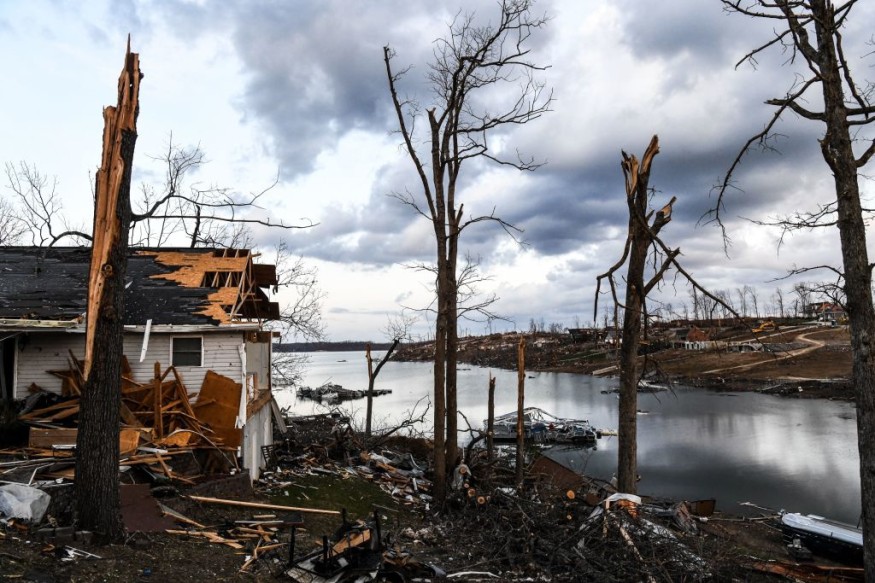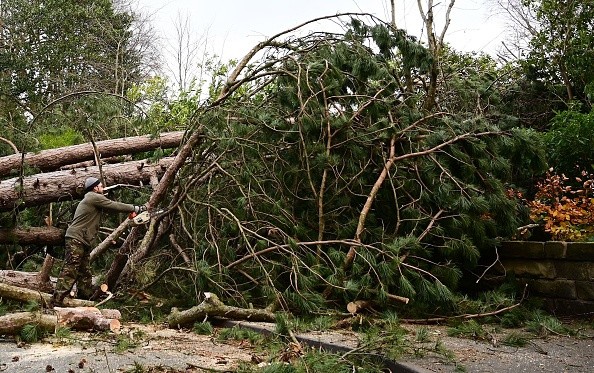According to a study, storm frequency has increased over 30 years, mainly due to land-use changes.
During the last 30 years, the frequency of thunderstorms in certain fast-growing African coastal towns has doubled, with much of the rise attributed to the influence of deforestation on the local climate, according to research.

It is well recognized that removing vegetation increases precipitation runoff and the likelihood of mudslides, such as the one that killed 1,100 people in Sierra Leone's capital, Freetown, in August 2017.
More frequent storm activity in coastal regions is a second, previously unknown, manner in which deforestation can enhance flooding, according to research headed by the UK Centre for Ecology & Hydrology (UKCEH).
Investigating Three Decades of Data
The study investigated three decades of satellite data in southern West Africa to demonstrate how weather patterns have been altered due to deforestation through changes in heating and moistening of the atmosphere.
The researchers discovered that the destruction of vast tracts of woodland has considerably increased the consequences of global warming in coastal portions of the region, including Guinea, Sierra Leone, Liberia, Ivory Coast, Ghana, and Nigeria. Storm frequency has doubled in deforested areas since 1991, whereas wooded regions have increased by roughly 40%.
Storms and the resultant rains harm urban and rural regions, although the deforested land had been handed over for agricultural and cooking fuel to sustain rising populations.
"The extent of increase in coastal storm activity is likely to vary in different regions, depending on the local climate, but we would expect deforestation to have a similar effect in other coastal deforested areas," says Professor Chris Taylor of UKCEH, who led the study, which was published in the journal PNAS.
"According to United Nations data, almost 40% of the world's population lives within 100 kilometers of the shore, thus increases in flash floods interrupt millions of people's lives." As a result, our findings serve as a warning to fast-growing coastal towns all around the world."
Habitable Areas

Large numbers of people live near the sea because of the food and economic benefits it gives.
Large tracts of coastal tropical forest are being lost in Africa and Southeast Asia. Global climate change is already affecting people, and drainage and other infrastructure are frequently ill-equipped to deal with significant flooding. Residents of Freetown, in particular, are already feeling the consequences of climate change, including severe temperatures and storm-related flash flooding.
"Deforestation is increasing the consequences of climate change in some of the world's least resilient cities, making it more difficult for these populations to deal with extreme weather events," Professor Taylor adds.
Deforestation has been associated with lower regional rainfall in Amazonia in previous studies. On the other hand, the ocean has a significant impact on local weather patterns, and this is the first research to look at the effects of deforestation on storm activity in coastal regions.
The study's co-author, Dr. Cornelia Klein of UKCEH, said that "sea breezes drive local weather patterns, and deforestation enhances these winds that deliver moisture inland, generating greater afternoon downpours."
Flash Flood
Flash flooding is becoming more widespread in West Africa during the rainy season. The study was part of continuing research by UKCEH and collaborators into past, present, and anticipated future climate change in West Africa. Global warming was blamed for a tripling in the frequency of severe Sahel storms in just 35 years, according to a study headed by Professor Taylor in 2017.
For more news update about Environmental Action, don't forget to follow Nature World News!
© 2025 NatureWorldNews.com All rights reserved. Do not reproduce without permission.





